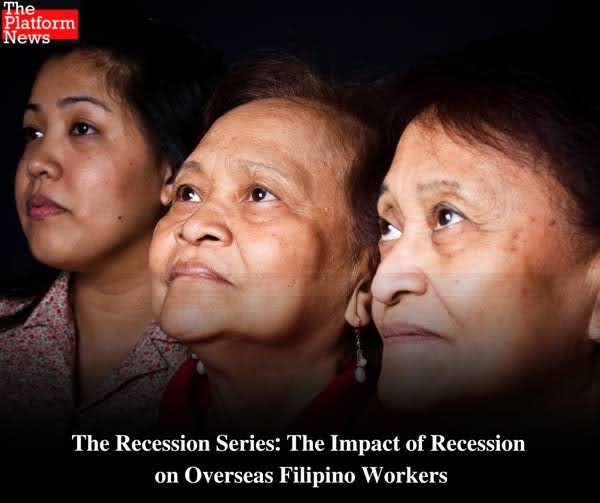One of the most significant changes brought by globalization was opening international borders for overseas employment. Filipinos have benefited from this change and transcended nations in hopes of building a better future for themselves and their families.
Foreign employment not only helps Filipinos generate a significantly higher income than working in the Philippines, it also boosts the nation’s economy through remittances. However, in a recessionary economy where proprietary activities suffer a downturn, what impacts does it bring Overseas Filipino Workers?
How bad does it cost the general economy and their families?
Let’s address them below.
How Recession Affects Overseas Filipino Workers
Here are the proven and potential impacts of the recession on OFWs from the past and forecasted global economic crises:
Unemployment – Job loss is a nightmare. It puts an individual in a position to move on, find another opportunity and financially regroup while doing all these at the soonest time possible. The 2008 global economic crisis was proof of these circumstances, particularly for overseas workers in the manufacturing industry. The same happened during the COVID-19 recession. According to the U.S. Bureau of Labor Statistics, the global unemployment rate went from 3.5% in February 2020 to 14.7% by April. Around this time, researchers in the Philippines haveestimated that 300,000 to 400,000 Filipinos deployed worldwide will suffer from salary cuts and lay-offs.
https://www.bls.gov/…/19-point-2-percent-of-the…
https://www.bls.gov/…/unemployment-rate-rises-to-record…
Return migration – Around 10% of Filipino households have at least one family member under foreign employment. In global economic crises and recessions, these families might also suffer following the lay-offs of companies and other establishments. Based on the International Organization for Migration’s report on COVID-19 Pandemic Affected Land-Based and Sea-Based Overseas Filipino Workers, 923,652 Filipinos have returned to the Philippines since the start of the COVID-19 pandemic up until February 2022. Although borders have loosened for a while now, the likelihood of these migration circumstances remains under observation should another crisis trigger them.
https://philippines.iom.int/…/2_How%20the%20COVID-19…
Remittance decline – Another financial repercussion of recessions on OFWs is the decline in remittances that they send to their families. Recent research conducted by International Organization for Migration Philippines revealed that most Filipinos employed offshore send remittances of around P10,000 to P25,000 monthly. These amounts often go to daily expenses, education and health care. However, with a threatening global crisis, these remittances will likely fall. Pair it with high, persisting inflation and allocating these funds to all their needs will be challenging for Filipino households.
https://philippines.iom.int/…/1_Uncertain%20Homecoming…
Other impacts of recession on OFWs
Although recession affects OFWs and their families mostly financially, other issues might also occur.
Social and family distress – Households may experience internal disruptions due to the decline in inflows perpetuated by their OFW member.
Increased debt – Following a decline or eventual absence of remittance from foreign employment can lead families to borrow and incur debts.
Absence of savings– Savings become more vulnerable during recessions when OFWs suffer unemployment. Not only will there be an inflow absence but a depletion of funds previously set aside.
Overseas Filipino Workers do not only suffer the impacts of recession from the global crises’ aspect. These individuals also deal with the non-financial issues triggered by these economic adversities. Although the governments of the affected nations are stringently implementing policies to alleviate society from worsening effects, these may not always be enough as all other resources are under compromise.
In the end, no one is safe, but we’re sure we’ll get back on track after these storms.



